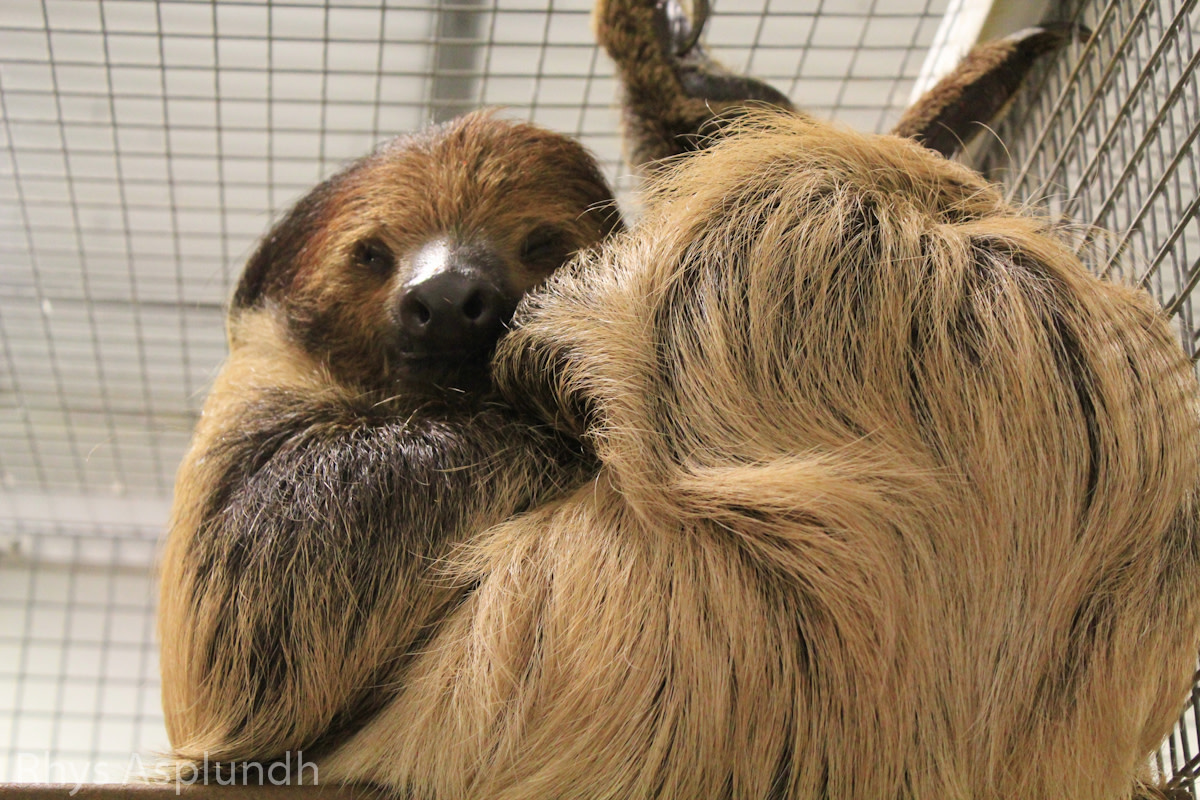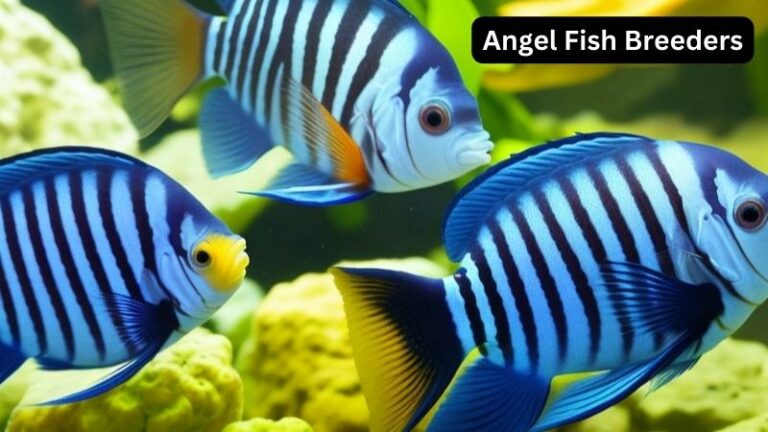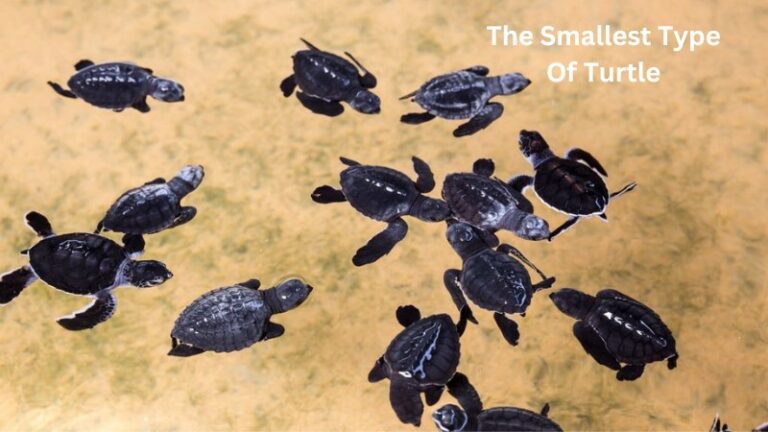What Exotic Animals Are Legal In Florida
Welcome to the fascinating world of exotic animals in Florida! You might be wondering, “What exotic animals are legal in Florida?” Well, you’ve come to the right place to satisfy your curiosity. In this article, we’ll explore the law surrounding exotic animals in the Sunshine State, giving you a glimpse into the incredible creatures you can find here.
Florida is famous for its diverse wildlife, from the iconic alligators to colorful birds and everything in between. But did you know that some people also keep exotic animals as pets? That’s right! In Florida, certain exotic animals can be legally owned with the proper permits and licenses. So, if you’ve ever dreamed of having an unusual pet, stick around to discover what options are available to you.
From majestic big cats to playful monkeys and fascinating reptiles, there is a wide range of exotic animals that Floridians can legally keep. So, whether you’re a curious animal enthusiast or considering adding a unique addition to your family, join us as we delve into the world of exotic animals and discover which ones are legal to own in Florida. Get ready for an adventure like no other!

What Exotic Animals are Legal in Florida?
Florida is known for its diverse wildlife, attracting animal lovers and enthusiasts from around the world. Many people are fascinated by exotic animals and dream of owning one as a pet. However, it’s essential to understand the laws and regulations surrounding exotic pet ownership in Florida. In this article, we will explore what exotic animals are legal to own in the state and provide valuable information for those interested in becoming exotic pet owners.
Types of Exotic Animals You Can Legally Own in Florida
Florida has specific laws regarding the ownership and possession of exotic animals. While some states have strict regulations, Florida provides more flexibility in terms of exotic pet ownership. Here are some types of exotic animals you can legally own in Florida:
Mammals
Florida allows the ownership of certain mammal species as exotic pets. These include non-native animals such as monkeys, lemurs, wallabies, and small cats (such as servals and caracals) that weigh less than 35 pounds. It’s important to note that owning large cats like lions, tigers, and leopards requires a different set of permits and licenses. Potential owners must obtain a Class I Wildlife Permit for these animals.
Owning a primate requires a special permit as well. Primates like monkeys and lemurs fall under the Class II Wildlife Permit category. It’s crucial for potential owners to research the specific requirements and regulations for each species to ensure proper care and legal compliance.
If you’re considering owning an exotic mammal in Florida, it’s recommended to consult with local authorities or a qualified exotic animal veterinarian to ensure you understand the regulations and responsibilities associated with these unique pets.
Reptiles
Florida has a thriving reptile community, and many reptile enthusiasts enjoy owning exotic species. The state allows the ownership of various reptiles as pets, including reptiles native to Florida and non-native exotic species.
Native species such as the American alligator, Eastern diamondback rattlesnake, and gopher tortoise require permits for personal possession. These permits are necessary to ensure the conservation of native Florida wildlife and to prevent unauthorized collection and trade. It’s crucial to receive proper training and education before handling and owning these animals.
Non-native reptiles, like various species of snakes (excluding venomous snakes), lizards, and turtles, are also legal to own in Florida. Before bringing a non-native reptile home as a pet, ensure that they are legally imported and that you have the necessary permits and proper enclosures to provide a safe and comfortable environment.
Owning Exotic Animals: Responsibilities and Considerations
Owning an exotic animal comes with significant responsibilities and considerations. It’s important to remember that these animals have unique needs and requirements that may be different from traditional pets like dogs and cats. Before deciding to bring an exotic animal into your home, consider the following:
Research and Education
Thoroughly research the specific species you’re interested in owning. Understanding their natural habitat, dietary needs, socialization requirements, and potential health issues is crucial to providing proper care and ensuring their well-being. Consult with exotic animal experts, veterinarians, and experienced owners to gather as much information as possible.
Consider visiting reputable wildlife sanctuaries and rescues to learn more about the animals and interact with them in a controlled environment. This hands-on experience can help you better understand the needs and behaviors of exotic animals.
In addition to research, educating yourself on the legalities of owning an exotic pet in Florida is essential. Each species may have specific permit and licensing requirements, and it is crucial to comply with these regulations to avoid legal consequences.
Financial Commitment
Owning an exotic animal can be costly. Not only do you need to provide appropriate housing and environmental enrichment, but you also need to consider veterinary care, specialized diets, and any potential legal fees associated with permits and licenses.
Exotic animals may require specialized veterinary care, which can be more expensive than caring for a traditional pet. It’s important to budget for routine check-ups, vaccinations, and any unforeseen medical issues that may arise.
Additionally, some exotic animals have long lifespans, so it’s crucial to consider the long-term financial commitment associated with their care. Ensure that you have the financial resources to provide for their needs throughout their entire lifespan.
Safety and Security
Owning an exotic animal presents unique safety and security concerns. Many exotic animals have specific housing requirements, which may include secure enclosures, fencing, locks, and escape-proof measures to prevent them from escaping and potentially causing harm to themselves or others.
It’s vital to assess your property and ensure that you can provide a safe environment for the animal, both indoors and outdoors. Consult with experts to determine the appropriate size and design of enclosures for your chosen species.
Additionally, consider the potential risks associated with handling and interacting with exotic animals. Some species may have instinctual behaviors and natural instincts that can pose a danger if not properly managed. Proper training and precautions are necessary to ensure personal safety and the welfare of the animal.
Conclusion
Owning an exotic animal in Florida can be a fulfilling and rewarding experience for those who are dedicated to providing the appropriate care and meeting the legal requirements. It’s crucial to thoroughly research the laws and regulations surrounding exotic pet ownership and to understand the responsibilities and commitments associated with caring for these unique creatures.
By educating yourself, ensuring financial preparedness, and providing a safe and enriching environment, you can create a fulfilling and harmonious relationship with your exotic pet. Remember to always prioritize the welfare and well-being of the animal, and consult with experts and professionals for guidance throughout your exotic pet ownership journey.
Key Takeaways: What Exotic Animals are Legal in Florida
- Florida allows the ownership of certain exotic animals with proper permits.
- Animals such as hedgehogs, sugar gliders, and ferrets are legal to own in Florida.
- However, some exotic animals, like primates and big cats, are prohibited in the state.
- Owning venomous snakes and crocodilians also requires special licensing.
- Always check with local authorities and obtain the necessary permits before owning an exotic pet.
Frequently Asked Questions
Curious about the exotic animals you can legally own in Florida? Look no further! Below are answers to some common questions on this topic:
What types of exotic pets can I legally own in Florida?
In Florida, it is legal to own certain exotic animals as pets. However, the specific animals that are allowed may vary depending on your county or city regulations. Some examples of exotic pets commonly permitted in Florida include certain reptiles like snakes and lizards, small non-venomous turtles, fish, birds, and small non-native mammals like hedgehogs and sugar gliders.
It is important to note that ownership of certain exotic animals may require special permits, licenses, or documentation, so it’s always a good idea to check with your local wildlife and conservation authorities to ensure you’re in compliance with the law.
Are there any restrictions on owning large exotic animals in Florida?
Yes, there are restrictions on owning large exotic animals in Florida. The ownership of animals such as big cats (e.g., lions, tigers) and primates (e.g., monkeys, apes) is highly regulated and is subject to specific laws and permits. These animals are considered to be more dangerous due to their size, strength, and potential to cause harm. As such, owning them often requires specialized permits, strict enclosures, liability insurance, and compliance with specific safety regulations.
It is crucial to research and understand the laws and regulations surrounding the ownership of large exotic animals in Florida before considering bringing one into your home, as non-compliance can lead to severe penalties and risks to public safety.
Can I own a pet alligator in Florida?
No, it is illegal to own an alligator as a pet in Florida without the proper permits. Alligators are considered dangerous wildlife, and their ownership requires specific licenses and strict adherence to regulations set by the Florida Fish and Wildlife Conservation Commission. These rules exist to protect public safety and ensure the welfare of the animals.
If you are interested in observing or interacting with alligators in a safe and legal manner, you can visit reputable wildlife sanctuaries and zoos in Florida that have the appropriate permits and facilities to care for these fascinating creatures.
What exotic pets are prohibited in Florida?
Florida prohibits the ownership of many exotic animals as pets. Some examples of animals that are strictly prohibited include chimpanzees, gorillas, other non-human primates, bears, crocodiles, caimans, certain venomous snakes, skunks, and certain large constrictor snakes like pythons. These restrictions are in place to protect both the public and the welfare of these animals, as they require specialized care and can pose significant risks if not properly managed.
It is crucial to research and understand the local and state regulations regarding prohibited exotic pets in Florida to ensure that you do not unintentionally violate the law.
How can I find out the specific regulations on exotic pet ownership in my Florida county or city?
To find out the specific regulations on exotic pet ownership in your county or city in Florida, it is best to contact your local wildlife and conservation authorities. They will be able to provide you with accurate and up-to-date information on permits, licenses, and any other requirements related to owning exotic animals as pets. Additionally, they can guide you on responsible ownership practices and help you navigate the legalities surrounding exotic pet ownership in your specific area.
Remember, it is always better to be well-informed and compliant with the law to ensure both the safety of the public and the welfare of the animals.

Exotic Animals to be Banned in Florida!
Summary
In Florida, it’s legal to have some exotic animals as pets, but there are regulations you need to follow. You can have a pet monkey if you obtain a special permit and follow certain conditions. It’s also legal to own small reptiles like snakes and lizards, but big cats and primates like chimpanzees are not allowed. It’s important to research the specific laws and permits before getting an exotic pet in Florida.
Aside from obtaining permits, you also need to ensure the wellbeing of the animal. Exotic pets require specialized care and environments. They can be dangerous and costly to keep. So, before thinking of having an exotic pet, make sure you have the time, resources, and knowledge to give them a safe and healthy home. It’s always best to consult with experts and consider adopting from reputable rescue organizations instead of supporting the exotic pet trade.


